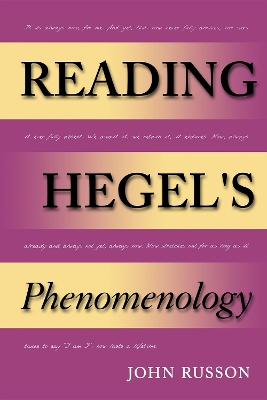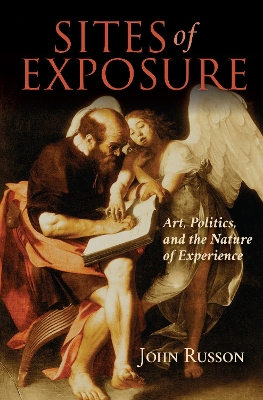Studies in Continental Thought
3 total works
In Reading Hegel's Phenomenology, John Russon uses the theme of reading to clarify the methods, premises, evidence, reasoning, and conclusions developed in Hegel's seminal text. Russon's approach facilitates comparing major sections and movements of the text, and demonstrates that each section of Phenomenology of Spirit stands independently in its focus on the themes of human experience. Along the way, Russon considers the rich relevance of Hegel's philosophy to understanding other key Western philosophers, such as Aristotle, Descartes, Kant, Husserl, Heidegger, and Derrida. Major themes include language, embodiment, desire, conscience, forgiveness, skepticism, law, ritual, multiculturalism, existentialism, deconstruction, and absolute knowing. An important companion to contemporary Hegel studies, this book will be of interest to all students of Hegel's philosophy.
John Russon draws from a broad range of art and literature to show how philosophy speaks to the most basic and important questions in our everyday lives. In Sites of Exposure, Russon grapples with how personal experiences such as growing up and confronting death combine with broader issues such as political oppression, economic exploitation, and the destruction of the natural environment to make life meaningful. His is cutting-edge philosophical work, illuminated by original and rigorous thinking that relies on cross-cultural communication and engagement with the richness of human cultural history. These probing interpretations of the nature of phenomenology, the philosophy of art, history, and politics, are appropriate for students and scholars of philosophy at all levels.
In Politics, Money, and Persuasion, distinguished philosopher John Russon offers a new framework for interpreting Plato's The Republic. For Russon, Plato's work is about the distinctive nature of what it is to be a human being and, correspondingly, what is distinctive about the nature of human society. Russon focuses on the realities of our everyday experience to come to profoundly insightful assessments of our human realities: the nature of the city, the nature of knowledge, and the nature of human psychology.
Russon's argument concentrates on the ambivalence of logos, which includes reflections on politics and philosophy and their place in human life, how humans have shaped the environment, our interactions with money, the economy, and taking account, and the pursuit of the good in social and political systems.
Politics, Money, and Persuasion offers a deeply personal but also practical kind of philosophical reading of Plato's classic text. It emphasizes the tight connection between the life of city and the life of the soul, demonstrating both the crucial role that human cognitive excellence and psychological health play in political and social life.


